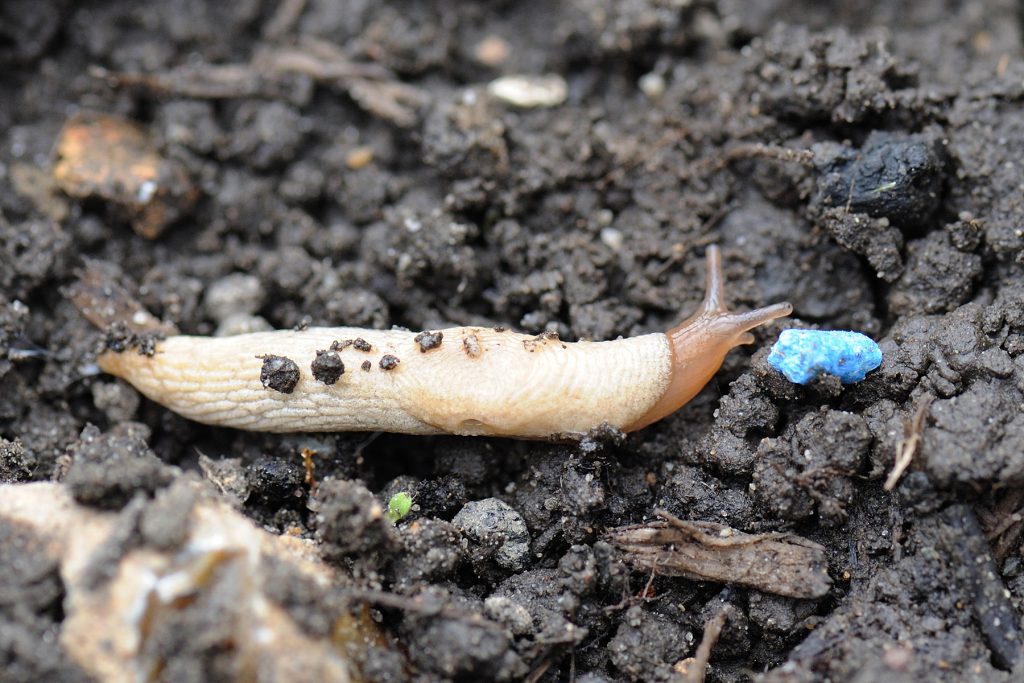Metaldehyde ban from spring 2020
19th December 2018
A ban on the outdoor use of metaldehyde, the active used in pellets to control slugs in a range of crops, is to be introduced across Great Britain from spring 2020, the Environment Secretary has announced (19th December).
A ban on the outdoor use of metaldehyde, the active used in pellets to control slugs in a range of crops, is to be introduced across Great Britain from spring 2020, the Environment Secretary has announced (19th December).
The decision to prohibit the use of metaldehyde, except in permanent greenhouses, follows advice from the UK Expert Committee on Pesticides (ECP) and the Health and Safety Executive (HSE) that metaldehyde poses an unacceptable risk to birds and mammals.
Environment Secretary Michael Gove said: “I recognise that significant effort has been put into encouraging growers and gardeners to use this pesticide responsibly by the Metaldehyde Stewardship Group. However, the advice is clear that the risks to wildlife are simply too great – and we must all play our part in helping to protect the environment.
“I encourage companies and growers to look at the alternatives, such as ferric phosphate, which is authorised and does not carry similar risks.”
The banning of metaldehyde is hugely disappointing and will have a major impact on British farmers and growers, the NFU said, highlighting that Defra has announced the ban despite products containing it still being authorised for use in other countries that export food to the UK.
NFU deputy president, Guy Smith, said: “Today’s announcement is very disappointing and will have a major impact on British farmers and growers. These products have been reauthorised for use in 21 EU member states and this ban is another decision that will have an impact on food production in this country. It simply gifts a competitive advantage to farmers abroad who will export into our markets using crop protection materials banned in the UK.

NFU deputy president, Guy Smith.
“Slugs are a significant pest for agricultural and horticultural crops like oilseed rape, cereals and potatoes which, if left unchecked, can cause considerable damage. The Agriculture and Horticulture Development Board has estimated that a lack of slug control products could cost UK crop production £100 million a year.
“Metaldehyde products play a key role as part of an integrated approach to slug control. Farmers are acutely aware of the need to use these products judiciously and to ensure their use has minimal impact on the environment. In autumn 2017, the Metaldehyde Stewardship Group introduced enhanced stewardship guidelines to help increase protection of watercourses and minimise the risk to other wildlife. Uptake of, and engagement with, these enhanced guidelines has been high and initial observations suggest that less metaldehyde was used in autumn 2017.
“Farmers and growers already use a holistic approach to slug control to keep the use of slug pellets to a minimum. While ferric phosphate can be used as an alternative slug control treatment it is possible that resistance could develop, as we have seen with other pesticide products when alternatives have been removed and farmers and growers have been left to rely on one active ingredient.”
Metaldehyde Stewardship Group (MSG) chairman David Cameron added that the news comes as a blow to the agricultural industry, which has worked collaboratively to safeguard this key active ingredient for slug control, since 2008.
Adama (UK) marketing and technical director, Alison Bosher, said: “This news comes as a great disappointment, not only to Adama as a manufacturer of metaldehyde slug pellets, but to the wider farming community, especially those growers who rely on effective molluscicides to prevent slugs from inflicting serious damage on their crop, thereby affecting both yield and quality.
“As a member of the Metaldehyde Stewardship Group, Adama has campaigned for the safe and responsible use of all metaldehyde based products. We also developed our own WaterAware app to promote the responsible use of such chemicals and to safeguard the long-term future availability of this key active ingredient. Unfortunately, despite these efforts, the revocation of the authorisation to use metaldehyde leaves UK growers without one of the most effective forms of defence against slugs.
“On a more positive note, Adama is already well on its way to developing new molluscicides using alternative modes of action and will be bringing these products to market over the next couple of years.”

